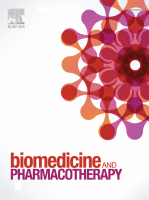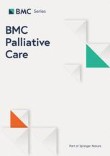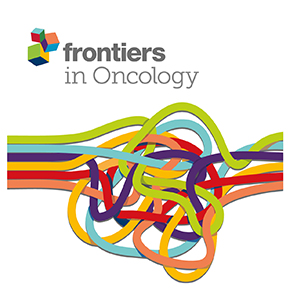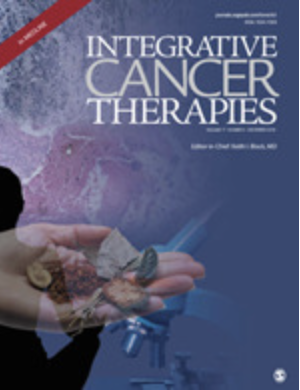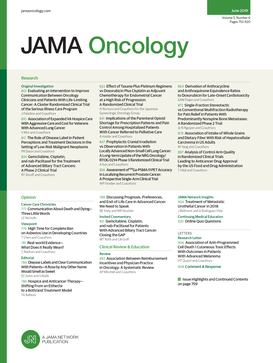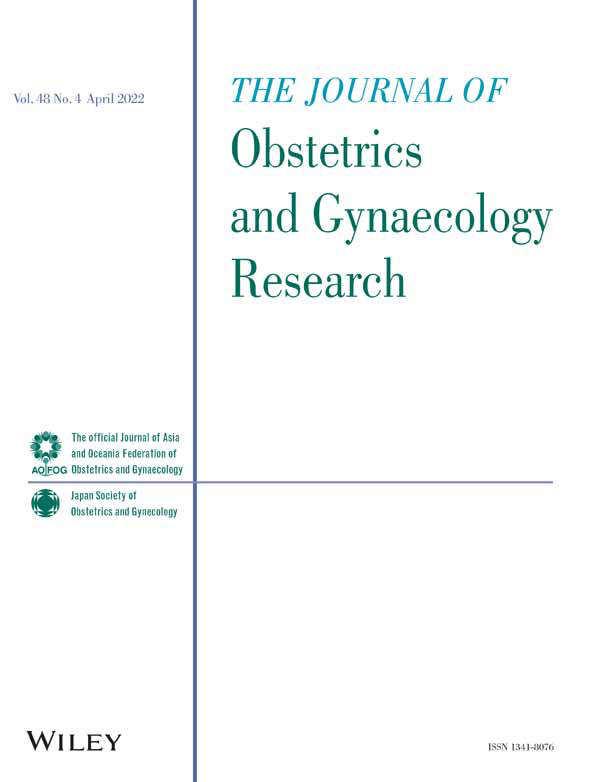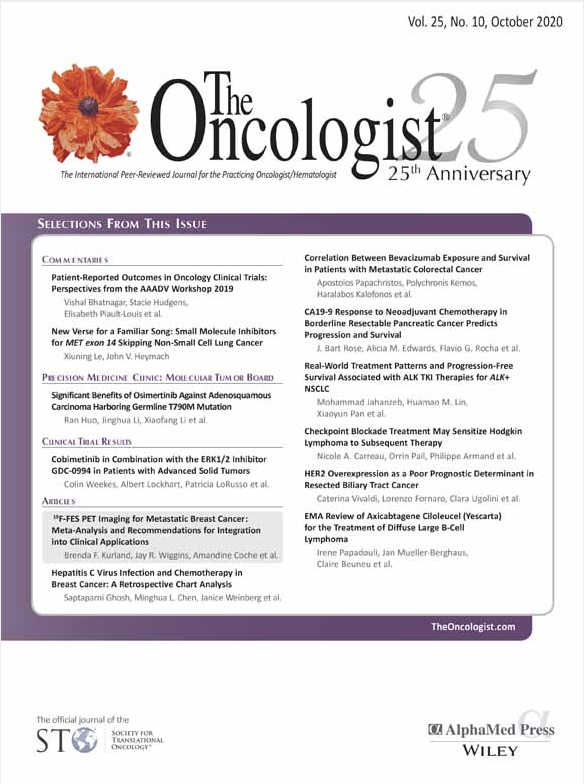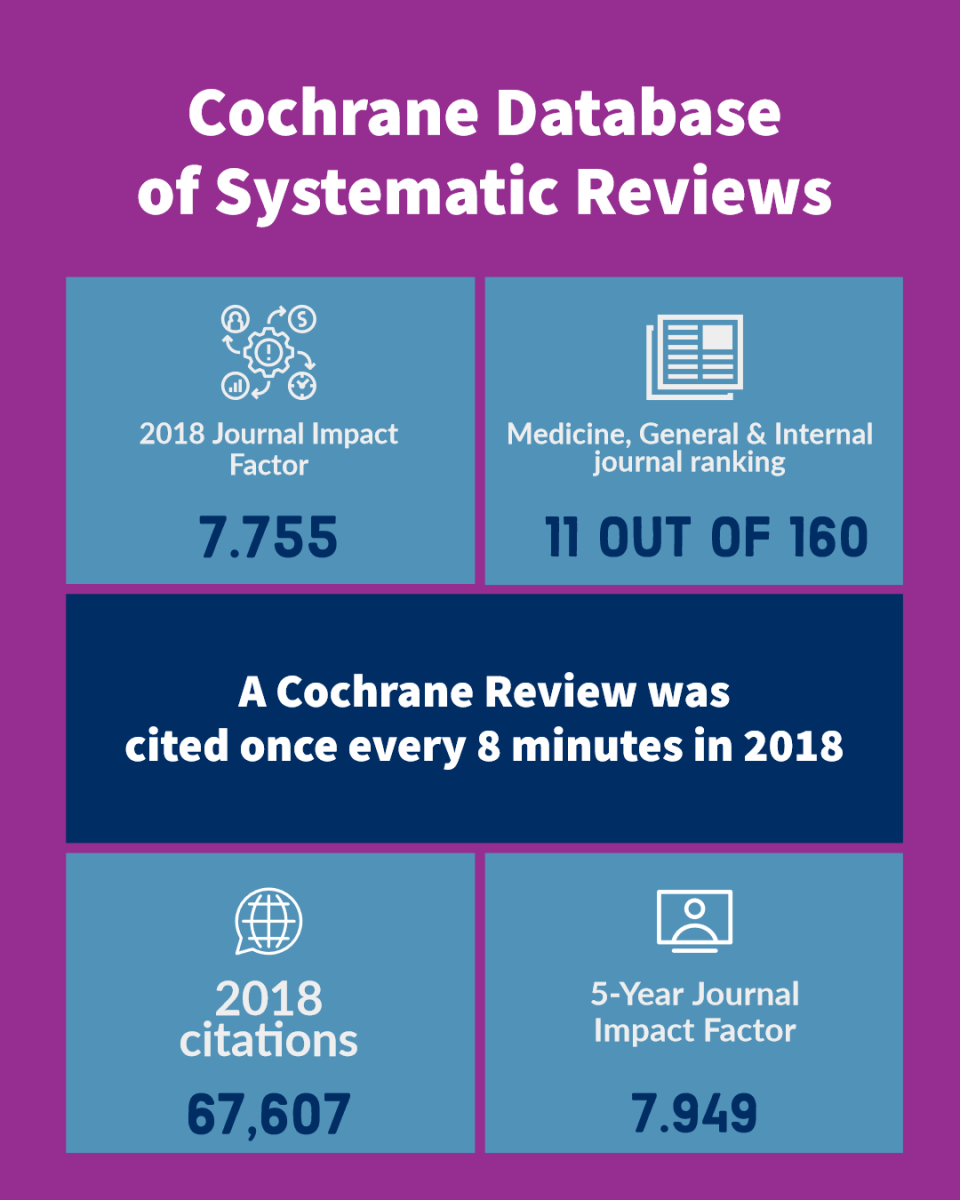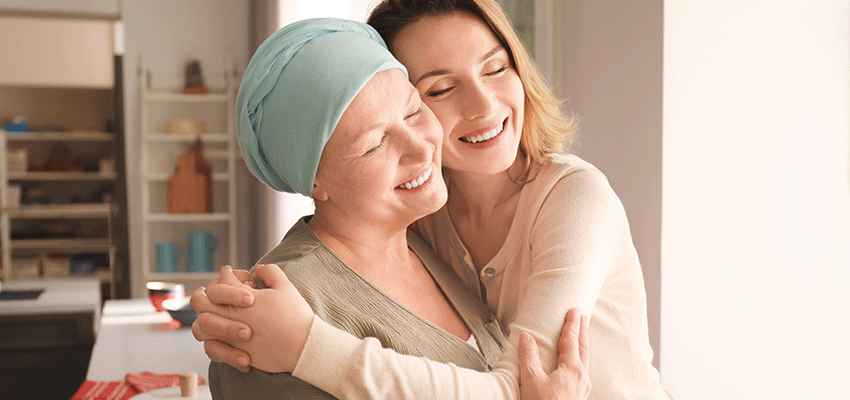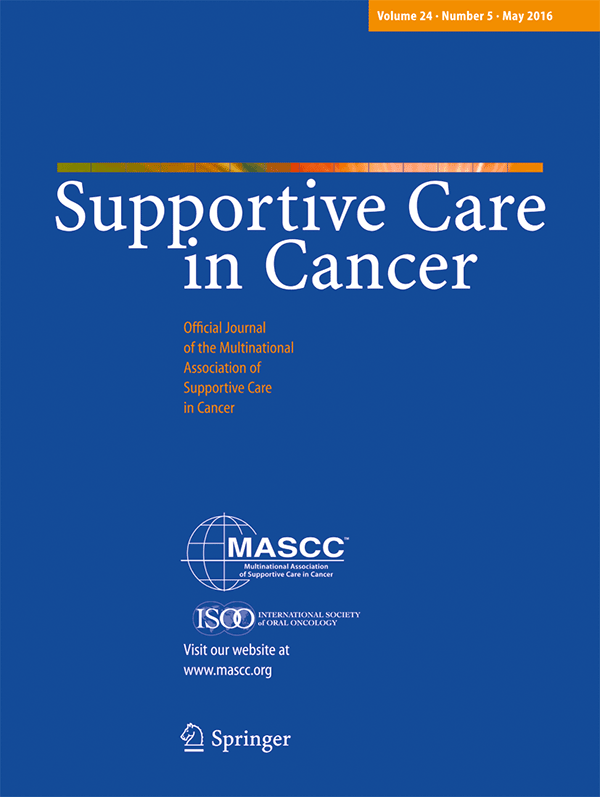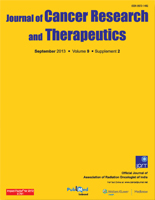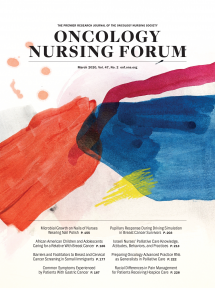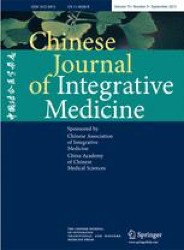Presentation Slides
Chinese Medicine Research Hub
Clinical Study
Consuming chocolate with higher cocoa content can improve the nutritional status and functionality of older cancer patients in palliative care.
2022 BMC Palliative Care Effect of chocolate on older patients with cancer in palliative care: a randomised controlled study
Vettori JC, da-Silva LG, Pfrimer K, Jordão AA, Louzada-Junior P, Moriguti JC, Ferriolli E, Lima NKC
Chinese Medicine Research Hub
Systematic Review
ST36 acupoint injections with dexamethasone outperforms conventional western medicine in treating chemotherapy-induced myelosuppression, significantly improving clinical efficacy and recovery.
2021 Frontiers in Oncology Zusanli (ST36) Acupoint Injection With Dexamethasone for Chemotherapy-Induced Myelosuppression: A Systematic Review and Meta-Analysis
Chen J, Lin Z, Ding J
Chinese Medicine Research Hub
Cohort Study
Traditional Chinese Medicine when combined with Western methods, could improve survival rates in patients with colorectal cancer.
2020 Evidence-Based Complementary and Alternative Medicine Integrated Chinese Herbal Medicine and Western Medicine on the Survival in Patients with Colorectal Cancer: A Retrospective Study of Medical Records
Yeh MH, Chiu HP, Wu MC, Koo M, Lin NW, Liao KK, Yeh CC, Li TM
Chinese Medicine Research Hub
Clinical Study
Tian Wang Bu Xin Dan can potentially alleviate symptoms of cancer-related insomnia similarly to cognitive-behavioral therapy.
2020 Integrative Cancer Therapies Comparative Effectiveness of Cheonwangbosimdan (Tian Wang Bu Xin Dan) Versus Cognitive-Behavioral Therapy for Insomnia in Cancer Patients: A Randomized, Controlled, Open-Label, Parallel-Group, Pilot Trial
Moon SY, Jerng UM, Kwon OJ, Jung SY, Lee JY, Yoon SW, Shin WC, Byun JI, Lee JH
Chinese Medicine Research Hub
Systematic Review
Acupuncture and/or acupressure was significantly associated with reduced cancer pain and decreased use of analgesics.
2019 JAMA Oncology Clinical Evidence for Association of Acupuncture and Acupressure With Improved Cancer Pain
A Systematic Review and Meta-Analysis
He Y, Guo X, May BH, et al.
Chinese Medicine Research Hub
Randomised Controlled Trial
Acupuncture treatment significantly improves neuropathic symptoms in women suffering from chemotherapy-induced peripheral neuropathy after breast cancer therapy.
2019 The Oncologist Acupuncture for Chemotherapy-Induced Peripheral Neuropathy in Breast Cancer Survivors: A Randomized Controlled Pilot Trial
Lu W, Giobbie-Hurder A, Freedman RA, Shin IH, Lin NU, Partridge AH, Rosenthal DS, Ligibel JA
Chinese Medicine Research Hub
Systematic Review
Acupuncture intervention could significantly improve the treatment outcomes for breast cancer-related lymphedema, regardless of the control treatments used.
2019 Journal of Obstetrics and Gynaecology Research Acupuncture therapy for breast cancer‐related lymphedema: A systematic review and meta‐analysis
Hou W, Pei L, Song Y, Wu J, Geng H, Chen L, Wang Y, Hu Y, Zhou J, Sun J
Chinese Medicine Research Hub
Systematic Review
Acupuncture has been presented as an effective intervention for reducing limb oedema in women post breast cancer surgery.
2019 Acupuncture in Medicine Effects of acupuncture on breast cancer-related lymphoedema: a systematic review and meta-analysis of randomised controlled trials
Zhang X, Wang X, Zhang B, Yang S, Liu D.
Chinese Medicine Research Hub
Meta-Analysis
Acupuncture significantly reduces cancer-related fatigue, especially in breast cancer patients and those undergoing anti-cancer treatment.
2017 Supportive Care in Cancer Effects of acupuncture on cancer-related fatigue: a meta-analysis
Zhang, Y., Lin, L., Li, H., Hu, Y., & Tian, L.
Chinese Medicine Research Hub
Systematic Review
Acupuncture appears to be a potentially effective treatment for reducing hot flashes in women diagnosed with breast cancer.
2016 Journal of Cancer Research and Therapeutics Acupuncture for hot flashes in women with breast cancer: A systematic review
Chen YP, Liu T, Peng YY, Wang YP, Chen H, Fan YF, Zhang L
Chinese Medicine Research Hub
Systematic Review
Acupuncture and related therapies are effective in reducing pain, fatigue, and in improving quality of life when compared with conventional intervention alone among cancer patients.
2016 Medicine Acupuncture and Related Therapies for Symptom Management in Palliative Cancer Care: Systematic Review and Meta-Analysis
Lau CH, Wu X, Chung VC, Liu X, Hui EP, Cramer H, Lauche R, Wong SY, Lau AY, Sit RS, Ziea ET, Ng BF, Wu JC.
Chinese Medicine Research Hub
Systematic Review
Although results are inconclusive, acupuncture and acupressure tend to be effective in relieving cancer related fatigue, with the former producing a greater improvement.
2014 Oncology Nursing Forum Effects of acupuncture and acupressure on cancer-related fatigue: a systematic review
Ling WM, Lui LY, So WK, Chan K.
Chinese Medicine Research Hub
Systematic Review
Acupuncture shows promising evidence in cancer palliative care, particularly in reducing therapy-induced side effects and cancer pain.
2013 Chinese Journal of Integrative Medicine Effectiveness of acupuncture for palliative care in cancer patients: A systematic review
Lian, WL., Pan, Mq., Zhou, Dh. & Zhang, ZJ.
Executive Summary
Write an executive summary in the form of a blog article on the topic of "Research into Chinese medicine treatment for Cancer Treatment Support" summarising the research below and using language that can be easily understood by patients and avoiding medical jargon using a professional and caring tone of voice.
Write an executive summary in the form of a blog article on the topic of "Researched Chinese medicine treatments for Cancer Treatment Support" summarising the research below in an objective and easy to understand way, and using language that can be easily understood by patients. Group the article into Chinese medicine treatments first, followed by nutrition and other treatments. Avoid using medical jargon and use a professional and caring tone of voice.
Write me a concise but easy to understand executive summary on the topic of "Chinese medicine treatments for Cancer Treatment Support" based on the following research that I will give you. Your summary should be 2 paragraphs long in Australian English spelling and include references to the studies.
A Clinical Study published in 2022 in the journal BMC Palliative Care found that Consuming chocolate with higher cocoa content can improve the nutritional status and functionality of older cancer patients in palliative care. In the conducted study, 46 older cancer patients under palliative care were divided into three groups. The control group did not have a change in their diet (CG, 15 patients). The other two groups were given intervention foods—55% cocoa chocolate (IG1, 16 patients) and white chocolate (IG2, 15 patients)—for a duration of four weeks. The primary outcome was assessed based on changes in the patients' nutritional status, as measured by the Mini Nutritional Assessment tool. Other factors examined included food consumption, body measurements, body composition, laboratory parameters, and quality of life, using the European Organization for the Research and Treatment of Cancer instrument.
Discussion of the results revealed that the group consuming 55% cocoa chocolate showed an improvement in nutritional scores and functionality, as evidenced by the Mini Nutritional Assessment and the quality of life scores respectively. On the other hand, the group consuming white chocolate displayed decreased oxidative stress levels. However, body composition and anthropometric measurements remained largely unchanged across all three groups.
A Systematic Review published in 2021 in the journal Frontiers in Oncology found that ST36 acupoint injections with dexamethasone outperforms conventional western medicine in treating chemotherapy-induced myelosuppression, significantly improving clinical efficacy and recovery. The study executed a systematic evaluation of the efficacy of ST36 acupoint injection with dexamethasone in treating chemotherapy-induced myelosuppression. A total of 17 randomized controlled trials from eight different databases were extracted for this meta-analysis. A detailed examination and analysis of various data gathered were performed using the Cochrane Collaboration tool for bias, Excel 2010 for creating an information extraction database, and RevMan 5.3.0 software for analyzing test data. The quality of evidence was graded using GRADE profiler 3.6 software.
The results indicated that compared to conventional western medicine, ST36 acupoint injection with dexamethasone vastly improved the clinical aggregate effective rate. Notably, it increased the white blood cell count and hemoglobin levels in patients, further enhancing their Karnofsky performance status. The treatment also shortened the recovery time of myelosuppression. However, there were no significant differences observed in platelet elevation between the ST36 acupoint injection with dexamethasone and conventional western medicine.
A Cohort Study published in 2020 in the journal Evidence-Based Complementary and Alternative Medicine found that Traditional Chinese Medicine when combined with Western methods, could improve survival rates in patients with colorectal cancer. The study undertook a retrospective analysis of patients, newly diagnosed with colorectal cancer during 2004-2014, who were treated at Dalin Tzu Chi Hospital. With the help of the hospital's cancer registry database and medical records, patients were categorized into two groups: those who used Chinese Herbal Medicine (CHM) and those who did not. Survival rates between these groups were investigated with Kaplan-Meier analyses and Cox proportional hazards regression analyses.
The research findings indicated a noticeable difference between the survival rates of the CHM users and the non-users. Furthermore, four specific CHM formulae - Jia Wei Xiao Yao San, Zhi Bah Di Huang Wan, Ping Wei San and Qui Pi Tang - were noted as significantly associated with enhanced survival. Therefore, it seems that integrating Chinese Herbal Medicine with Western treatment protocols could enhance survival in patients afflicted with colorectal cancer.
A Clinical Study published in 2020 in the journal Integrative Cancer Therapies found that Tian Wang Bu Xin Dan can potentially alleviate symptoms of cancer-related insomnia similarly to cognitive-behavioral therapy. In this study, 22 participants were divided equally between a group given Cheonwangbosimdan and a control group who received cognitive-behavioral therapy for insomnia. Participants in the Cheonwangbosimdan group were required to consume the herbal liquid daily and participate in weekly visits for a period of four weeks. Conversely, the control group underwent behavioral therapy sessions 4 times over the same four-week period.
The outcomes from these interventions were evaluated using key indices that measured participants' insomnia severity, sleep quality, fatigue, anxiety, and overall performance status. With the focus being on changes observed from the inception of the trial to the end, these measurements were taken at the conclusion of the fifth week. While no significant difference was found between the two study groups, both displayed a positive trend towards alleviating the symptoms of cancer-related insomnia, with anxiety levels markedly lower in the treatment group.
A Systematic Review published in 2019 in the journal JAMA Oncology found that Acupuncture and/or acupressure was significantly associated with reduced cancer pain and decreased use of analgesics. This study found a moderate level of evidence that acupuncture and/or acupressure was significantly associated with lower pain intensity in patients with cancer compared with a sham control, which suggests a potential for a combination of acupuncture and acupressure to help reduce opioid doses in patients with cancer.
A Randomised Controlled Trial published in 2019 in the journal The Oncologist found that Acupuncture treatment significantly improves neuropathic symptoms in women suffering from chemotherapy-induced peripheral neuropathy after breast cancer therapy. In this randomized pilot trial, women with stage I-III breast cancer with grade 1 or higher chemotherapy-induced peripheral neuropathy post adjuvant chemotherapy were tested. Patients were split evenly into two groups: an immediate acupuncture group and a control group. Those in the immediate acupuncture arm underwent 18 acupuncture sessions over 8 weeks before the treatment was halted. Conversely, the control group received the usual care over eight weeks before beginning nine acupuncture sessions across the same time span. Different parameters such as sensory scores, neurotoxicity, and pain severity were evaluated at the start, then at 4, 8, and 16 weeks post enrollment.
The results, which excluded any statistical references, showed a notable improvement in the immediate acupuncture group in terms of neuropathic symptoms, including sensory scores, neurotoxicity summary score, and pain severity score when observed at the end of eight weeks. No negative side effects were observed during the entire period. This indicates acupuncture as a potential therapeutic option for breast cancer patients suffering from chemotherapy-induced peripheral neuropathy.
A Systematic Review published in 2019 in the journal Journal of Obstetrics and Gynaecology Research found that Acupuncture intervention could significantly improve the treatment outcomes for breast cancer-related lymphedema, regardless of the control treatments used. The methodology of this study began with a detailed survey of public databases, including China Academic Journals Full-text Database, Database of Chinese Sci-Tech Journal, Wanfang, PubMed, Embase and the Cochrane Library, and focused on looking for randomized controlled trials related to the use of acupuncture for the treatment of breast cancer-related lymphedema. Clinical trials on the treatment of this condition, where acupuncture was used in conjunction with drugs or functional exercise, were singled out for inclusion in the study. The assessment of any potential risk of bias and quality was performed by two investigators using Cochrane Handbook standard, accompanied by meta-analysis with the help of Revman software.
As for the discussion of the results, the study comprised 13 different studies, enrolling a total of 747 patients. Analysis of these enrolled studies revealed that the use of acupuncture intervention showed an increase in success rate in treating breast cancer-related lymphedema. This was evidenced by an observed improvement in the subjective pain, discomfort, and upper limb swelling in patients who received acupuncture therapy, irrespective of the control intervention used. However, it was mentioned that the majority of the studies used in the assessment contained inconsistent efficacy indicators.
A Systematic Review published in 2019 in the journal Acupuncture in Medicine found that Acupuncture has been presented as an effective intervention for reducing limb oedema in women post breast cancer surgery. The methodology involved a broad electronic search through six databases for research papers published till November 2017. Only randomized controlled trials focused on the use of acupuncture for breast cancer-related lymphedema were included in the process. Ultimately, six trials, involving a cumulative total of 318 patients, were identified for evaluation. The main outcomes looked at were the pre/post-treatment differences in the diameter of the elbow joint, reductions in upper limb lymphedema and effectiveness index based on arm measurement data in patients with breast cancer.
The analysis of results revealed an overall positive effect of acupuncture intervention on the parameters examined. Two of the studies observed a significant reduction in elbow joint diameter and upper limb lymphedema in the acupuncture groups. Another two studies noted a marked difference in the effectiveness index based on arm measurements between the acupuncture and control groups, favoring the former. The fifth study used bioelectrical impedance spectroscopy and reported a significant reduction in lymphedema. The sixth study, however, did not report any significant difference in bioimpedance between the groups. Overall the results suggest that acupuncture could be an effective method for managing limb oedema in patients post breast cancer treatment.
A Meta-Analysis published in 2017 in the journal Supportive Care in Cancer found that Acupuncture significantly reduces cancer-related fatigue, especially in breast cancer patients and those undergoing anti-cancer treatment. In the methodology, seven different medical databases were systematically reviewed for randomized controlled trials concerning the effects of acupuncture on cancer-related fatigue up until November 2016. Two independent reviewers assessed for bias and extracted correlated data with the use of Review Manager 5. Ten trials met the eligibility criteria for the meta-analysis, which incorporated a total of 1327 patients; 733 received acupuncture and 594 served as control.
The results showed that acupuncture markedly mitigated fatigue in cancer patients irrespective of whether they were simultaneously undergoing anti-cancer treatment, with particularly substantial effects among those with breast cancer. The duration and frequency of acupuncture sessions varied, but all schedules produced meaningful effects. While a majority of the trials reported no negative events, one highlighted manageable incidents such as spot bleeding and bruising. Overall, acupuncture was found to be a successful method for managing cancer-related fatigue.
A Systematic Review published in 2016 in the journal Journal of Cancer Research and Therapeutics found that Acupuncture appears to be a potentially effective treatment for reducing hot flashes in women diagnosed with breast cancer. In this systematic review, seven extensive databases including internationally recognized sources like PubMed, Web of Science, and Embase were searched without any language restrictions to identify relevant randomized controlled trials (RCTs) investigating the impacts of acupuncture on hot flashes in women with breast cancer. The timeframe of these searches spanned from the inception of each database to June 2015.
The results of the 12 identified RCTs suggested an overall potential therapeutic effect of acupuncture on hot flashes in women with breast cancer. Notably, out of these, three studies highlighted a significant difference compared with control groups while one showed encouraging trends. Six studies suggested no notable difference between acupuncture and control treatments. A further two trials revealed negative results when compared to hormone therapy. A meta-analysis of the results also suggested differences in the number of hot flashes post-treatment and during subsequent follow-ups compared with control groups. In three trials, Kupperman index scores were reported, indicating a significant difference between acupuncture and controls after treatment and during follow-up. However, due to the overall relatively small number and inconsistent quality of the reviewed studies, these results should be interpreted with caution.
A Systematic Review published in 2016 in the journal Medicine found that Acupuncture and related therapies are effective in reducing pain, fatigue, and in improving quality of life when compared with conventional intervention alone among cancer patients. Thirteen RCTs were included. Compared with conventional interventions, meta-analysis demonstrated that acupuncture and related therapies significantly reduced pain (2 studies, n = 175, pooled weighted mean difference: −0.76, 95% confidence interval: −0.14 to −0.39) among patients with liver or gastric cancer. Combined use of acupuncture and related therapies and Chinese herbal medicine improved quality of life in patients with gastrointestinal cancer (2 studies, n = 111, pooled standard mean difference: 0.75, 95% confidence interval: 0.36–1.13). Acupressure showed significant efficacy in reducing fatigue in lung cancer patients when compared with sham acupressure. Adverse events for acupuncture and related therapies were infrequent and mild.
Acupuncture and related therapies are effective in reducing pain, fatigue, and in improving quality of life when compared with conventional intervention alone among cancer patients. Limitations on current evidence body imply that they should be used as a complement, rather than an alternative, to conventional care. Effectiveness of acupuncture and related therapies for managing anorexia, reducing constipation, paresthesia and dysesthesia, insomnia, and limb edema in cancer patients is uncertain, warranting future RCTs in these areas.
A Systematic Review published in 2014 in the journal Oncology Nursing Forum found that Although results are inconclusive, acupuncture and acupressure tend to be effective in relieving cancer related fatigue, with the former producing a greater improvement. Although results are inconclusive, acupuncture and acupressure tend to be effective in relieving CRF, with the former producing a greater improvement. Future research is recommended to contribute further evidence.
Implications for Nursing: Nurses should know about the relative effectiveness of acupuncture and acupressure in the management of CRF to educate and support their patients.
A Systematic Review published in 2013 in the journal Chinese Journal of Integrative Medicine found that Acupuncture shows promising evidence in cancer palliative care, particularly in reducing therapy-induced side effects and cancer pain. The study examined data from 33 randomized clinical trials that investigated the effectiveness of acupuncture in palliative care for cancer patients. The data were collected from seven different databases dating up to December 2010. The extraction and validation process was overseen by two independent reviewers who also assessed the trials using the Jadad scale.
The trials evaluated revealed diverse impacts of acupuncture on numerous cancer-related conditions. These include effects on side effects arising from chemotherapy or radiotherapy, cancer pain, post-operative urinary retention and other aspects of quality of life. The results showed promising potential for acupuncture being beneficial in palliative care, particularly in the reduction of chemotherapy or radiotherapy-induced side effects, and pain related to cancer.
